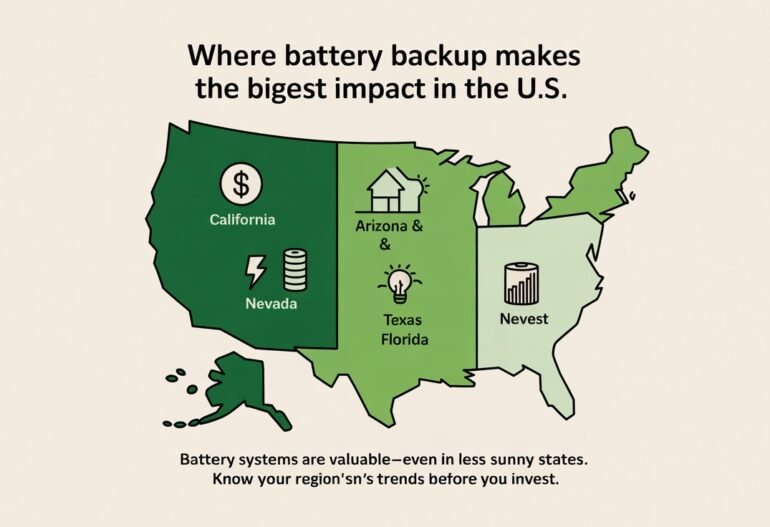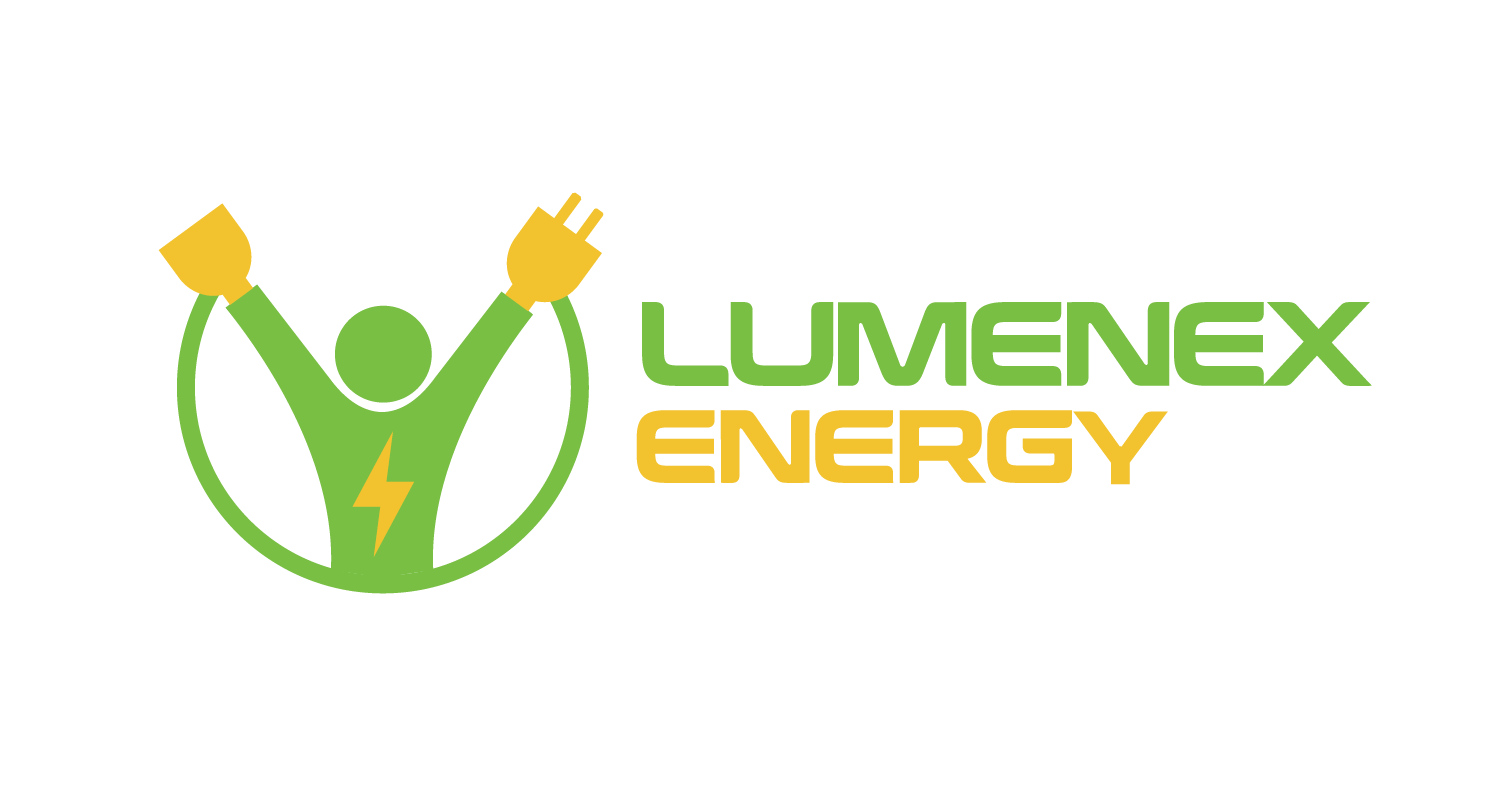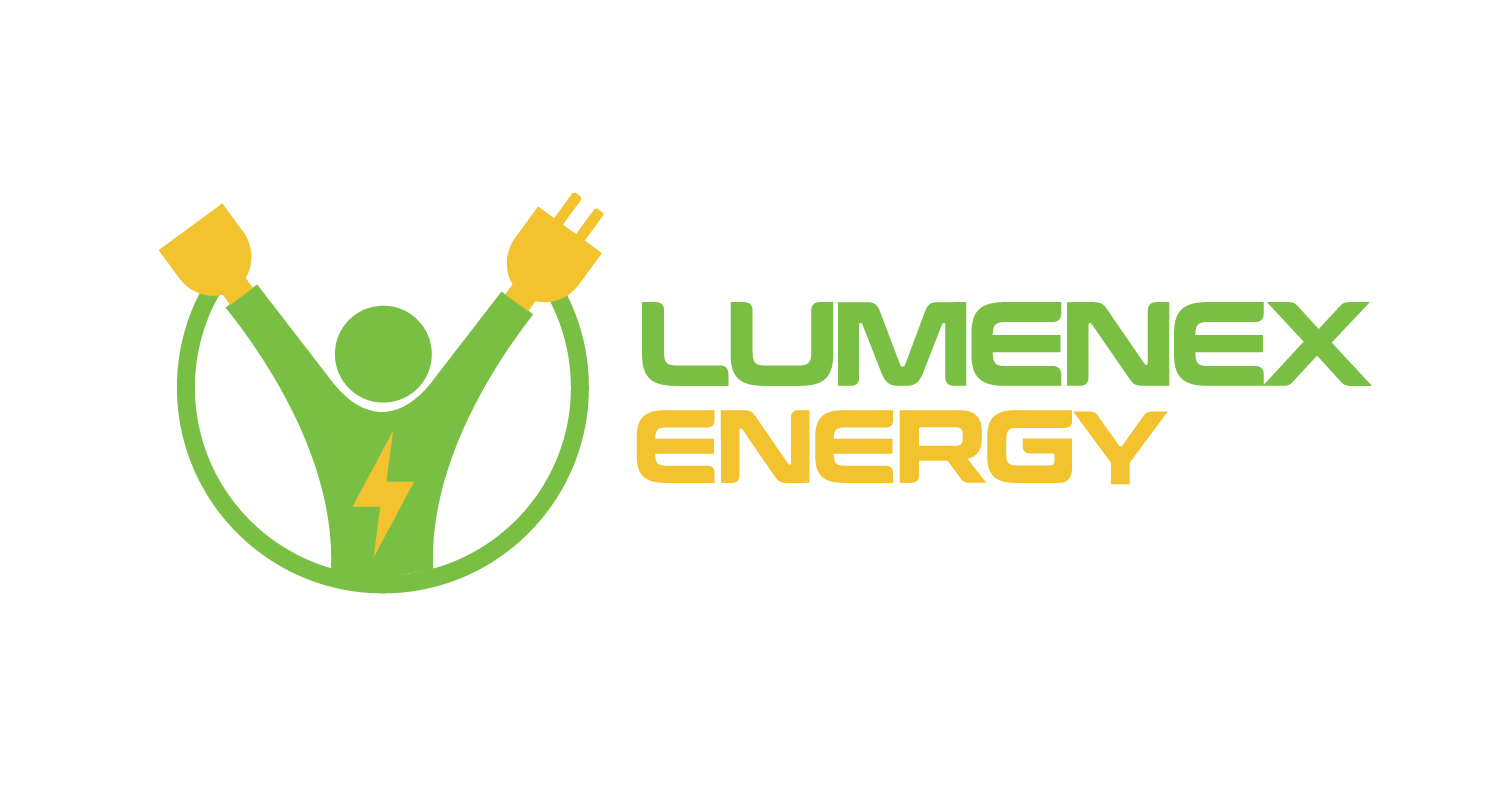What if you are in the middle of dinner prep, on a Zoom meeting, or watching a family movie night–and the power goes out? Sound familiar? Each year, millions of homeowners in America experience power outages- precipitated by everything, including storms and grid failures as well as sudden utility curtailments.
However, it can be done in a smarter, cleaner way: residential battery back up systems. These systems can store the electricity and, as a result, will automatically keep your home running when there is no grid present in your area- keeping your family safe and connected at all times of the day.
This guide will take you through the breakdown of the way home battery backups work, the advantages, the best options, and why they are becoming critical in 2025.
What Is a Home Battery Backup?
A home battery-energy storage system (usually of energy produced by a solar array or the electrical grid) can store energy to enable power use during a utility power outage or period of high-rate demand. Consider it your safety net of energy.
The systems are silent, automatic, clean, and smart, unlike gas generators.
How Do Home Battery Backups Work?
The majority of systems work without disturbance and automatically. Here’s how:
- Charge Up: Your solar panels will store power, or they will just use a cheaper supply when the grid is off-peak.
- Detect Outages: When the grid fails, in a flash, your battery is keeping your house energized, without you usually realizing it.
- Keep Running: The critical appliances include fridges, lights, medical appliances, and Wi-Fi remain online.
- Recharge by the grid: automatically: When the grid is back or the sun is out,t your battery recharges itself.
Why More U.S. Homeowners Are Investing in Battery Backup
- Uninterrupted Power
Whether it is blackouts or brownouts, your battery makes sure life does not miss a step.
- Energy Independence
Team up with solar to generate, store, and use your power, and no mediator is needed.
- Reduce Energy Bills
By drawing on stored energy during peak-hour charges, keep your utility bills down.
- Eco-Friendly
Batteries minimize your dependence on grids operated on fossil fuels. No vapour, no clangour.
- Emergency-Ready
There is an increase in climate-related activities such as heat waves, snowstorms, and hurricanes. The batteries keep you connected and secure all through.
- Increased House Price
Solar & battery storage homes sell better to buyers and potentially go at a quicker rate- particularly in energy-savvy markets, California-Texas-Florida.
What to Look for in a Home Battery Backup System
The selection of the system will depend on the necessity. Remember these:
- Battery Capacity (kWh): The amount of energy that it contains.
- Power Output (kW): Will it be enough to power sensible commitments to appliances, HVAC, or cooking?
- Solar Ready: Works with the solar panels you already have or the ones you plan to install.
- Expandability: Are you able to put in additional batteries in the future?
- Warranty: 10 years or more / ~ 6000 cycles.
- Smart Monitoring: See the battery status and use it right in your phone.
Top Home Battery Backup Brands in 2025
- Tesla Powerwall 3
Space-saving, sleek design of 13.5 kWh capacity
Smoothly compatible with solar panel systems
Controllable through a mobile app, real-time monitoring, and storm warning
Both whole-home and partial backup are friendly
- Enphase IQ Battery
Modular, in 3.5 kWh to 14 kWh options
Small to medium-sized homes are ideal to be use with it
Compares and syncs with Enphase microinverters and solar systems
Viable for expanding energy demands
- Anker SOLIX
Minimal, portable, easy setup
They are made to easily fit into the home energy systems
Reputed to have superior intelligent energy and app control
It is a good pick as a backup energy source that can be flexible and efficient
Is It Good to Get Home Battery Systems?
In a word, yes! The easiest and most practical way to answer this is yes, if you are in a region that experiences frequent power outages or if you pay high electricity rates.
Cost Breakdown:
- Up Front Cost: around 8000-18000 by capacity and model.
- Federal Tax Credit: 30% (Irag 2025)
- State Rebates & Utility Incentives: Colorado, New Mexico, North Carolina, Utah
And the benefit is that depending on how much you use, and depending on how cheap solar gets, you could break even in 6-10 years just by putting solar + battery.
You are in control of your power
You simply do not need to be controlled by power outages. A residential battery backup system lets you gain control over the power; is in your hands to keep your home safe, comfortable, and connected.
It is not only convenient, it is resilient, it is saving, and a clean energy future.
Are you willing to Go Solar + Battery?
Get a custom quote, understand incentives in your jurisdiction as well and start building a smarter home energy system today.




